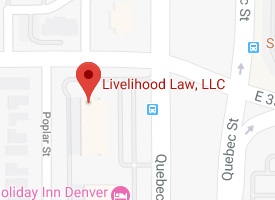
Today, most employees know that satisfactory job performance doesn’t guarantee job security. Mass layoffs, reduction in companies’ workforce, and job turnover have become part of everyday life. Despite these common occurrences, employers cannot fire workers illegally without consequence. Federal and state law penalizes employers for terminating employees in violation of the law or public policy.
Although most workers understand the term public policy in the broad sense, few know what the word means in the legal sense or how it relates to employment law. So let’s take a look at the public policy exception to “at-will” employment and what workers can do to fight back if they’ve been fired illegally.
What is “at-will” employment?
In Colorado, and the majority of states, employees are presumed to have a non-contractual, “at-will” employment relationship with their employer. “At-will” employment means that, so long as there isn’t an employment contract, employers may fire workers from their job without warning or explanation for any reason that isn’t illegal, or even no reason at all.
An employer is not obligated to tell you the reason that you are being fired, and it is our experience that employers are often less than candid. This could be because the organization is just poorly run, the employer isn’t willing to make the effort to be honest, or it could be for an illegal reason.
What is wrongful termination?
Often workers feel that they have been terminated “wrongfully” if they are fired for things they did not do, unfair reasons, or because the company is lying about something that happened. But those reasons do not necessarily meet the legal standard for wrongful termination. For a valid claim of wrongful termination in Colorado, the termination must be related to an exception of the “at-will” employment doctrine. Those exceptions include discrimination, retaliation, breach of contract, and violations of public policy.
Although the “at-will” employment doctrine lets employers fire workers without warning or explanation, they cannot fire employees for an illegal reason. If that occurs, the employer is liable for wrongful termination.
What does it mean to have a claim for wrongful termination under public policy?
Under the public policy exception to “at-will” employment , an employer may not fire an employee if the termination violates explicit, well-established public policies of Colorado. Public policies are sets of principles that guide the interpretation and enforcement of the law.
Colorado deems a termination in violation of public policy if an employer fires an employee for the following reasons:
- Refusing to commit a crime or perform an illegal act,
- Reporting criminal workplace conduct, i.e., whistle-blowing,
- Performing a public duty such as jury duty or voting,
- Exercising a job-related right or privilege such as filing a worker’s compensation claim, or
- Engaging in lawful off duty activities.
A classic case of wrongful discharge in violation of public policy: Workers’ Compensation
Employers in Colorado are prohibited from firing employees in retaliation for filing workers’ compensation claims. However, most employers will never admit to firing a worker because she was injured at work. Instead, they will point to some unrelated and perhaps fabricated performance-based reason in an attempt to justify the termination. That’s why terminated employees with workers’ compensation claims should contact an employment attorney right away. If an employer claims you were fired for job performance, they may be trying to hide a retaliatory termination, and an attorney can help to build that case for you.
How can you fight back?
If you believe your termination in in violation of a public policy, Livelihood law is here to help. Contact the experienced employment attorneys at our firm and let us go over your rights and options today.


